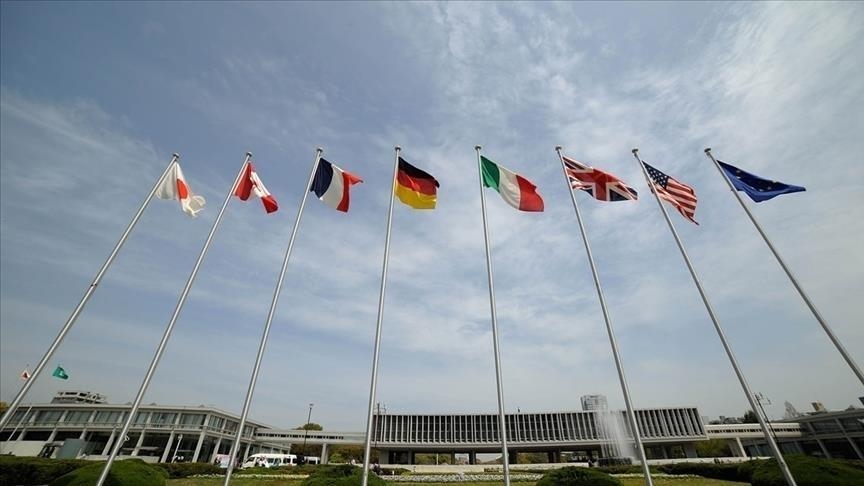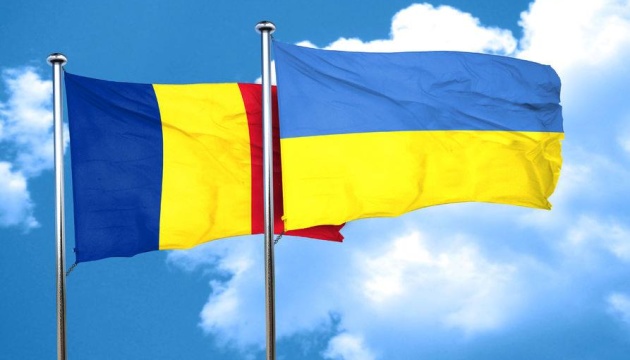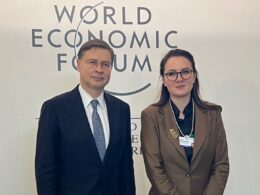The US opposes calling Russia the aggressor in a G7 statement marking the third anniversary of Russia’s all-out war against Ukraine, according to five Western officials cited by Financial Times.
On 12 February, Trump announced the start of negotiations with Moscow to end Russia’s war in Ukraine, following calls with Russian ruler Vladimir Putin. His statement triggered a wave of criticism, as experts warned that it could be a ceasefire on Putin’s terms with a lack of security guarantees for Ukraine, especially after US Secretary of Defense Pete Hegseth called Ukraine’s NATO membership aspirations “unrealistic.” This conversation also stirred concerns in Europe, as its representatives were not involved in the negotiations. Amid uncertainty about whether the US will lead to a weakening of NATO due to its increasingly isolationist stance, many media outlets and analysts have labeled this strategy as a victory for Russia.
They warned that this stance threatens to undermine the traditional display of unity among G7 leaders. Officials also noted that Ukrainian President Volodymyr Zelenskyy’s participation in the online G7 summit remains unconfirmed.
The reported disagreements follow Donald Trump’s recent statements, in which he blamed Ukraine for the war, called Zelenskyy a “dictator,” and suggested inviting Russia back to the G7.
According to officials, US representatives opposed the phrase “Russian aggression” and similar wording that G7 leaders have used since 2022 to describe the war.
“We are adamant that there must be a distinction made between Russia and Ukraine. They are not the same,” a well-informed official told Financial Times.
The US Embassy in Kyiv declined to comment on the matter.
Officials say Trump’s administration is shifting US rhetoric toward framing the war as a “conflict in Ukraine”, signaling a major policy change.
Recent US State Department statements reflect this shift, particularly in the readout of Secretary of State Marco Rubio’s meeting with Russian Foreign Minister Sergey Lavrov in Riyadh, which twice referred to the war as a “conflict in Ukraine”.
This marks a departure from the Biden administration’s language, which consistently used terms like “Russian aggression” when describing Europe’s largest land war since WWII.
Earlier, French Foreign Minister Jean-Noël Barrot said he believes Russia’s return to the so-called G7 group is currently impossible due to its aggression.
According to Barrot, Russia is currently acting as an aggressor, threatening other G7 countries. Barrot added that he could change his mind if he were told that “Russia has finally agreed that Ukraine should have real security guarantees or even that Ukraine should join NATO.”
Read more:
- Trump has no plan for peace negotiations and it won’t work, says Danish military analyst
- US-Russia talks isolate Zelenskyy while Putin seeks to remove Ukrainian leader and install pro-Moscow puppet
- Johnson calls on Europe to act and ‘stop being scandalized’ with Trump
- Reality check: Zelenskyy’s approval is 54%, not 4% as Trump claims—and it still beats Trump’s
- Kellogg arrives in Ukraine after Trump criticizes Zelenskyy and praises his deal-making





